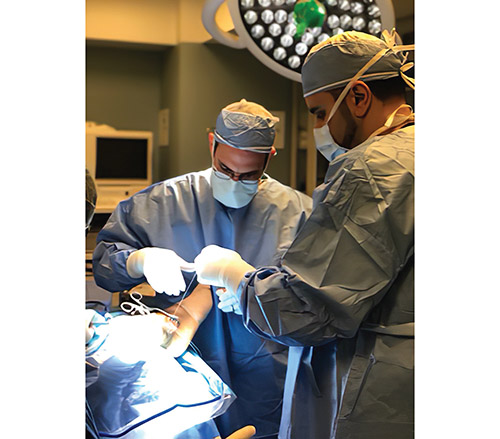

Ambulatory Surgery Centers, also known as outpatient, or same-day surgery centers are facilities providing surgical care to patients not in need of an overnight stay. Typically, these surgeries are less complicated as well as performed on patients that are overall healthier. The choice of whether or not a surgery should be performed in a hospital versus an ambulatory surgery center is usually made in conjunction with discussion between patients and surgeon.
The first ambulatory surgery center in this country was established in Phoenix, Arizona in 1970. Since that time, there has been a massive burgeoning of ambulatory surgery centers as well as surgical procedures performed in these environments. As of 2011, approximately 23 million procedures per year were performed in over 5,300 ambulatory surgery centers in the United States. According to Dunn and Bradstreet, performing an industry profile, there are currently over 6,800 centers in the United States.
Patients often ask what benefit is a surgery done in an ambulatory surgery center versus the hospital? Ambulatory surgery centers, because they are smaller, are often occupied and manned by physicians who have some degree of ownership. The patients are more easily scheduled and find familiar faces upon arrival. Furthermore, because the overall complexity of cases is less, the flow and stream of patients in and out of an ambulatory surgery center is much more efficient than in a hospital. As an example, a knee arthroscopy, which procedurally should take 30-45 minutes, were it to be done in a hospital, may be an entire-day event because of the various levels of administration and admission necessary. In an ambulatory surgery center, this entire process may be, from in to out, several hours only.
The most commonly performed surgeries, as per Medicare in 2016, were cataracts surgery, lens surgery and gastrointestinal endoscopy and colonoscopy. Recently, there has been a large push for cost containment by the government, which has resulted in more surgeries being approved for ambulatory surgery centers. Commonly, pain management procedures as well as podiatric procedures, other orthopedic procedures, and even simple spinal surgeries, such as cervical discectomy and fusion, and lumbar discectomies are safely performed in ambulatory surgery centers.
As mentioned, cost is an issue. Because of the significant burdens of more morbidly ill patients, the costs typically rise in hospital settings, whereas ambulatory surgery centers are heavily incentivized to keep costs within manageable amounts.
Perhaps the greatest benefit to patients is that, whereas hospitals are often located in high-traffic areas, ambulatory surgery centers are often dotted within the community. As an example, there is a Teaneck ambulatory surgery center, a Bergenfield surgical center, a Paramus surgical center, as well as others.
There are various accrediting bodies, including centers for Medicare and Medicaid, which oversee accreditation by the AAASF and the HFAP as well as the joint commission. Sixteen ambulatory surgery centers alone opened across the country in March 2019.
Physicians and patients will often comment about the overall friendlier environment of an ambulatory surgery center, and this has also driven significant growth in the industry. With regard to safety, studies have shown that outpatient surgery is as safe or safer than an inpatient surgery in regards to complication rates, postsurgical hospital as well as readmission rates, and pain and infection rates. Some of the metrics are better than in hospitals because, as mentioned, many of the comorbid conditions which exist in tandem with hospital settings.
High-profile cases in which ambulatory surgery centers have had significant complications, have led people to question the safety of these centers. That is why there must be a hospital transfer policy between an ambulatory center and a surrounding hospital in the event of a complication requiring hospital admission.
One thing is for sure: ASCs as they are known, are here to stay!
The Center for Musculoskeletal Disorders performs surgery in inpatient hospital settings as well as outpatient settings, individualized to the appropriate patient, doctor, condition, and pathology of the patient. If you have any questions whether or not your surgery is better suited for a hospital inpatient or an ambulatory setting,please do not hesitate to reach out to us at (201) 510-3777. Ask for Hannah or Marissa.
By CMD Staff With Isaac Abramchayev PA
�










